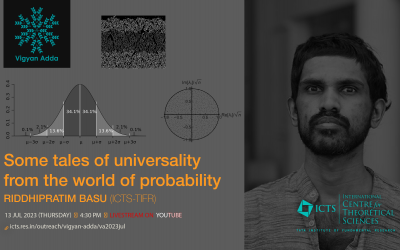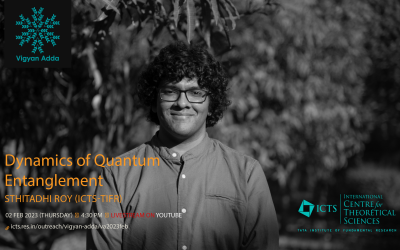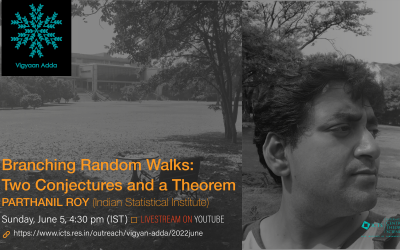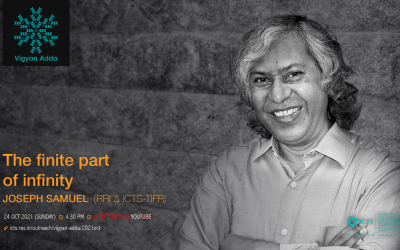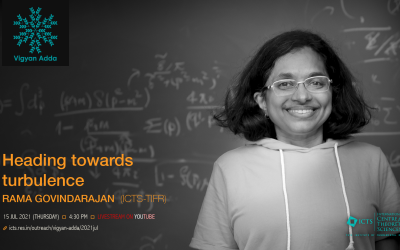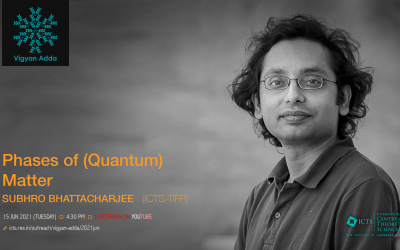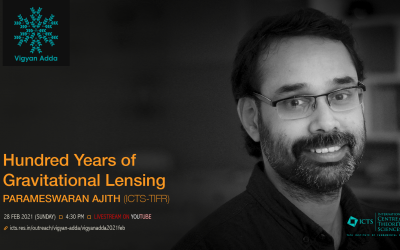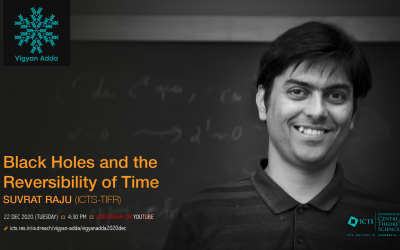Christian Schlötterer (Institute of Population Genetics, Vienna)
4:30 pm to 6:00 pm Thursday, 30 May 2024
Online
Abstract: Ever wonder what your life would be like if you'd made a different choice? Those "coin toss" moments happen all the time, not just for us, but for entire populations of living things! This can make it tricky for scientists to tell if something is changing a species on purpose (like...more


 This is a forum through which academics from ICTS and other similar institutes and universities can explain their scientific work to broader audiences, or engage with the public on scientific and mathematical topics of interest.
This is a forum through which academics from ICTS and other similar institutes and universities can explain their scientific work to broader audiences, or engage with the public on scientific and mathematical topics of interest.
